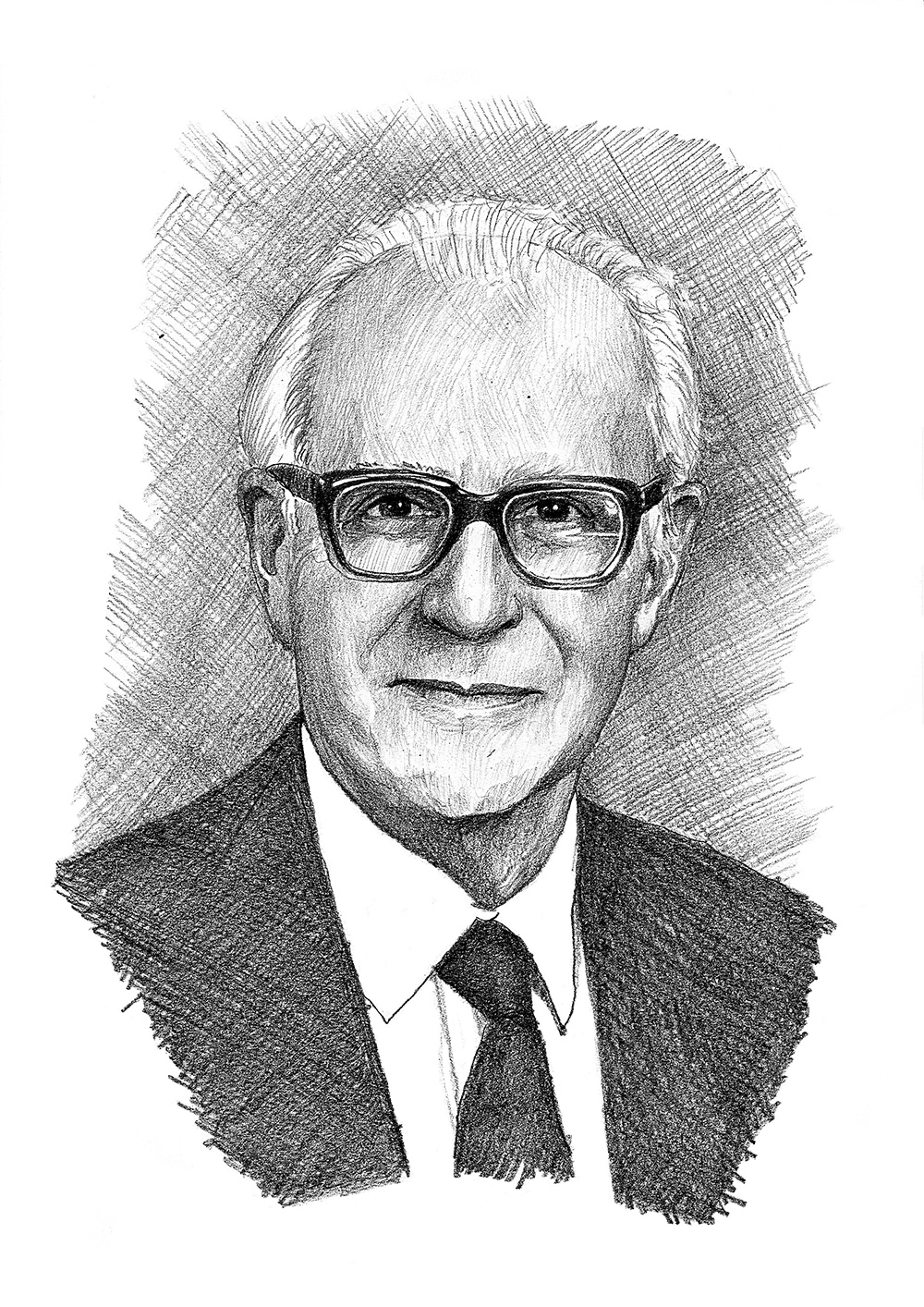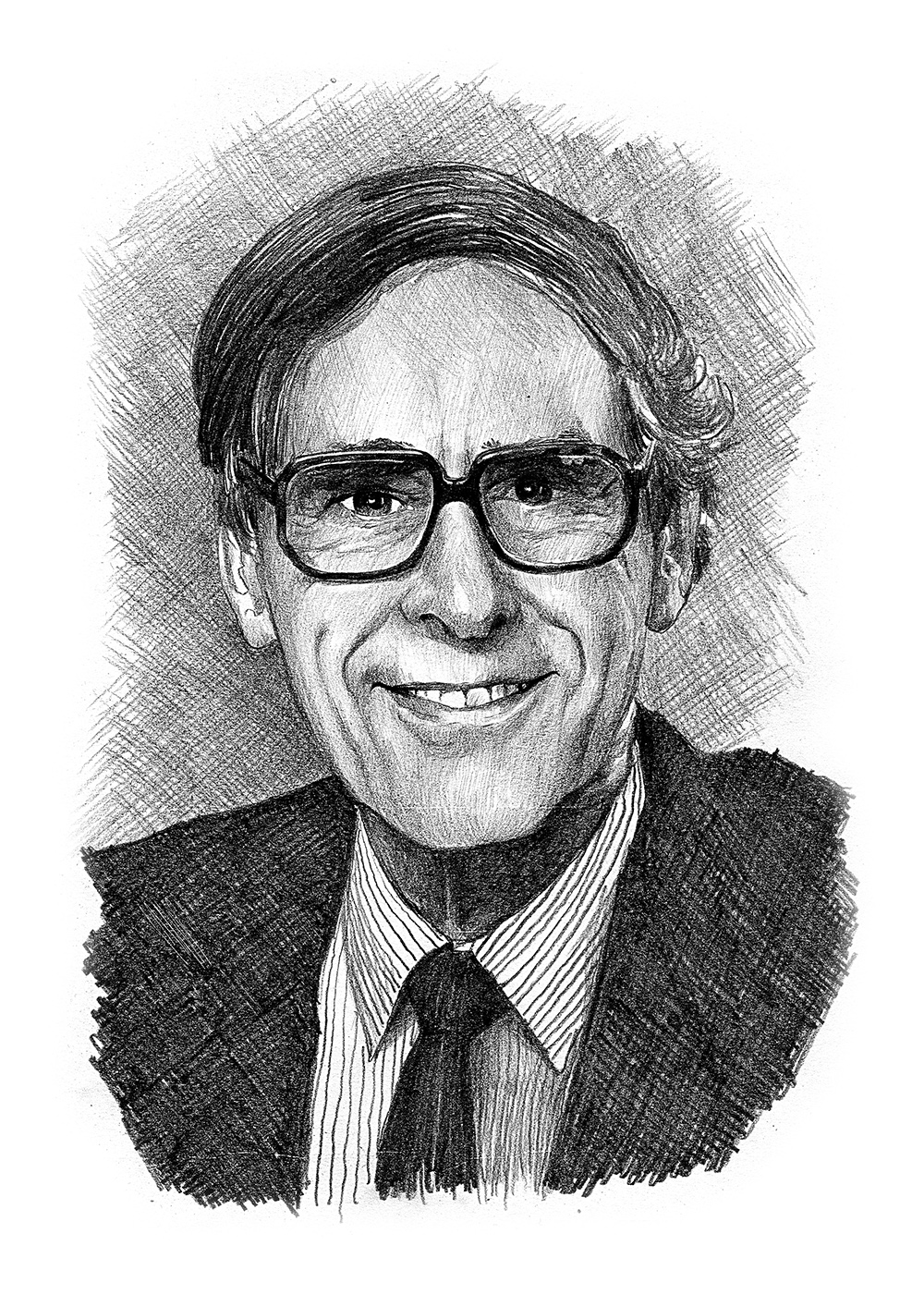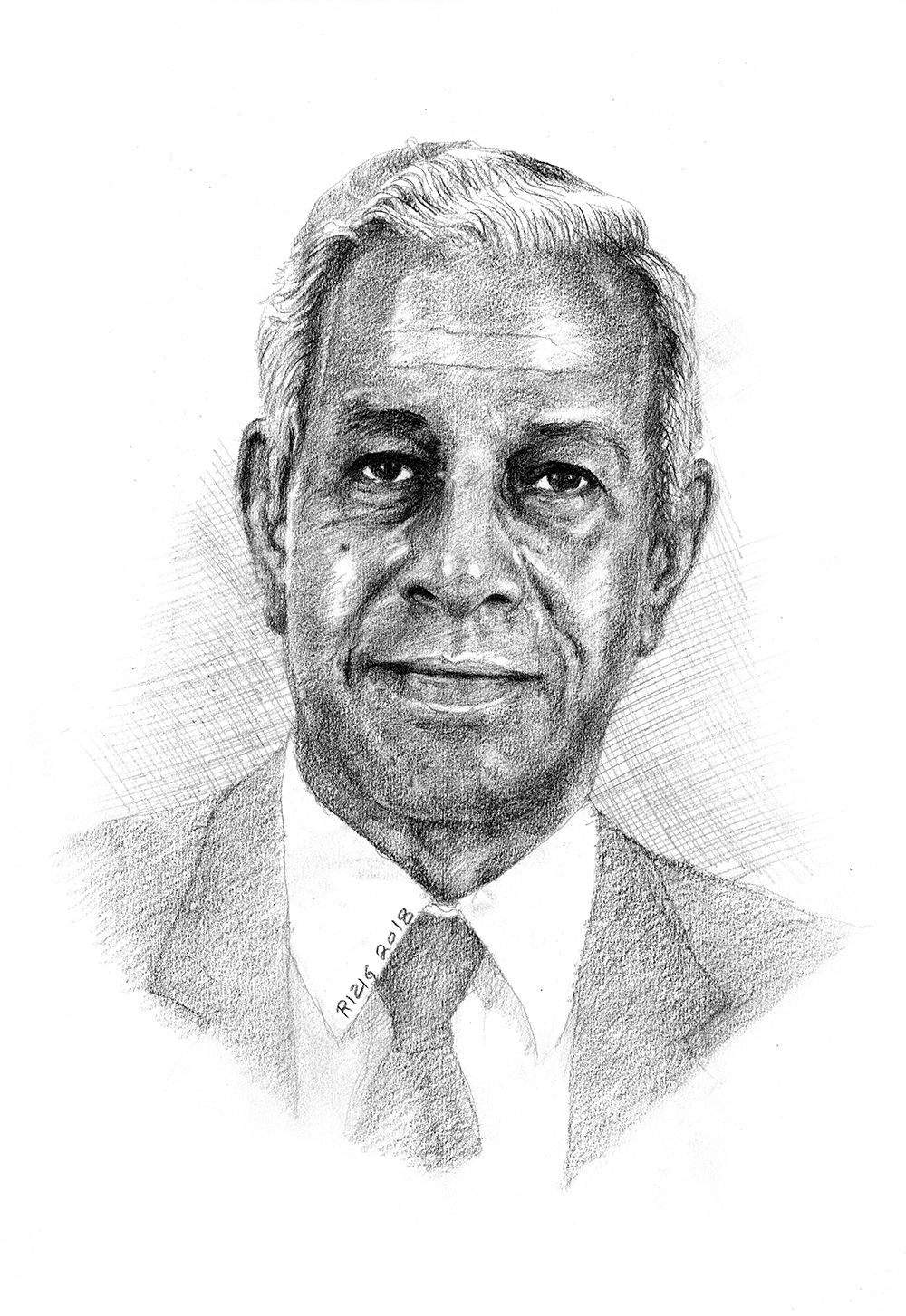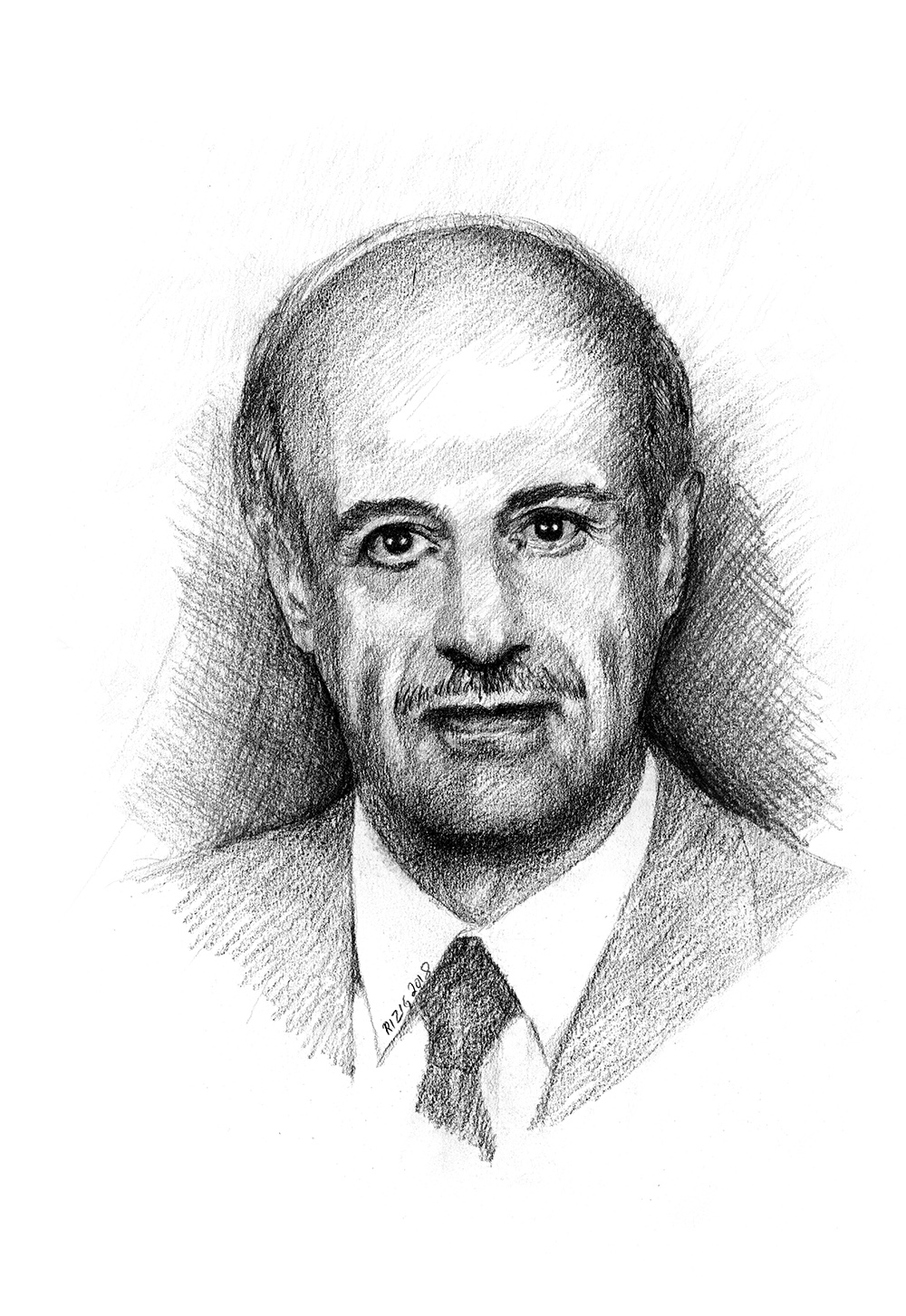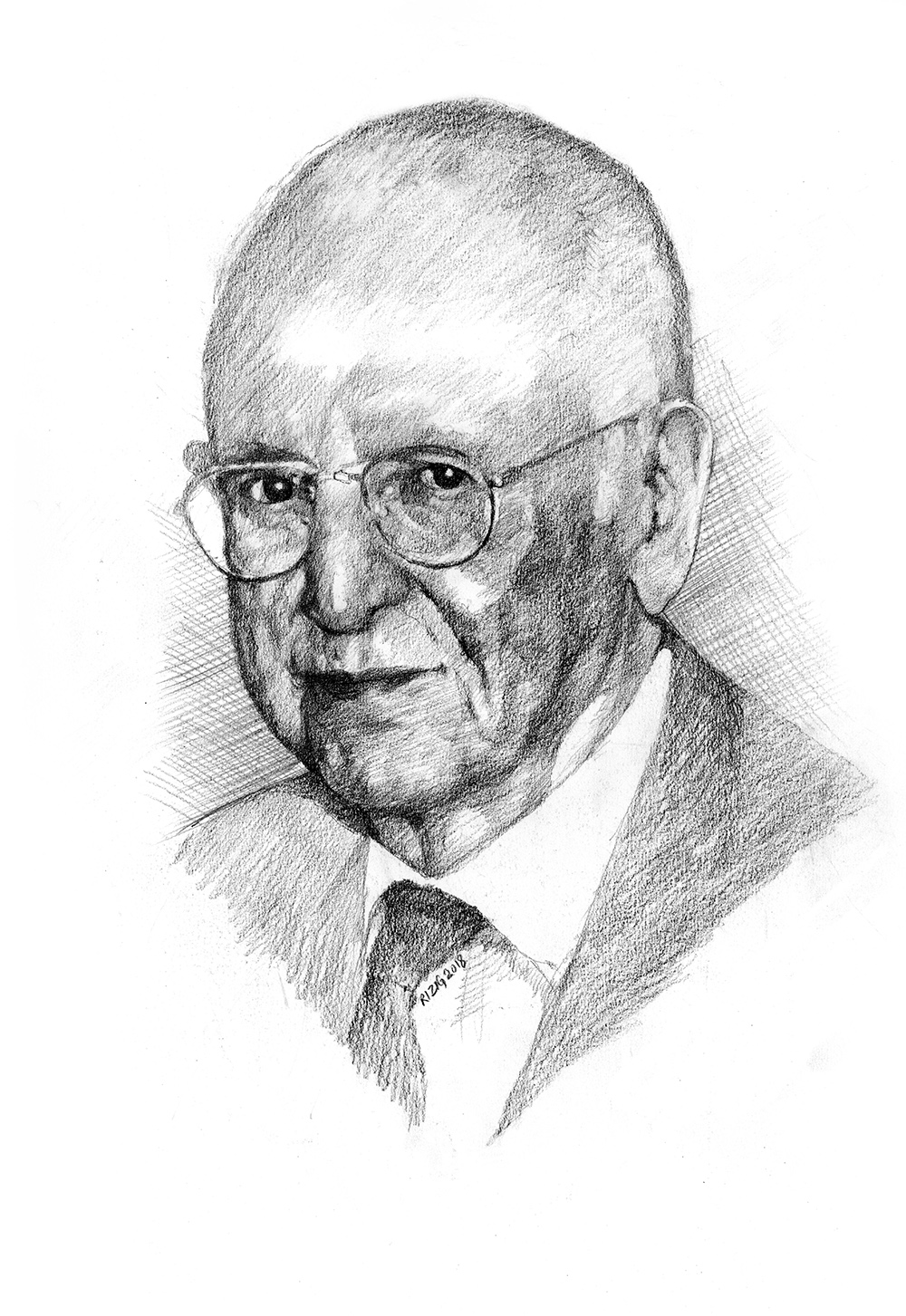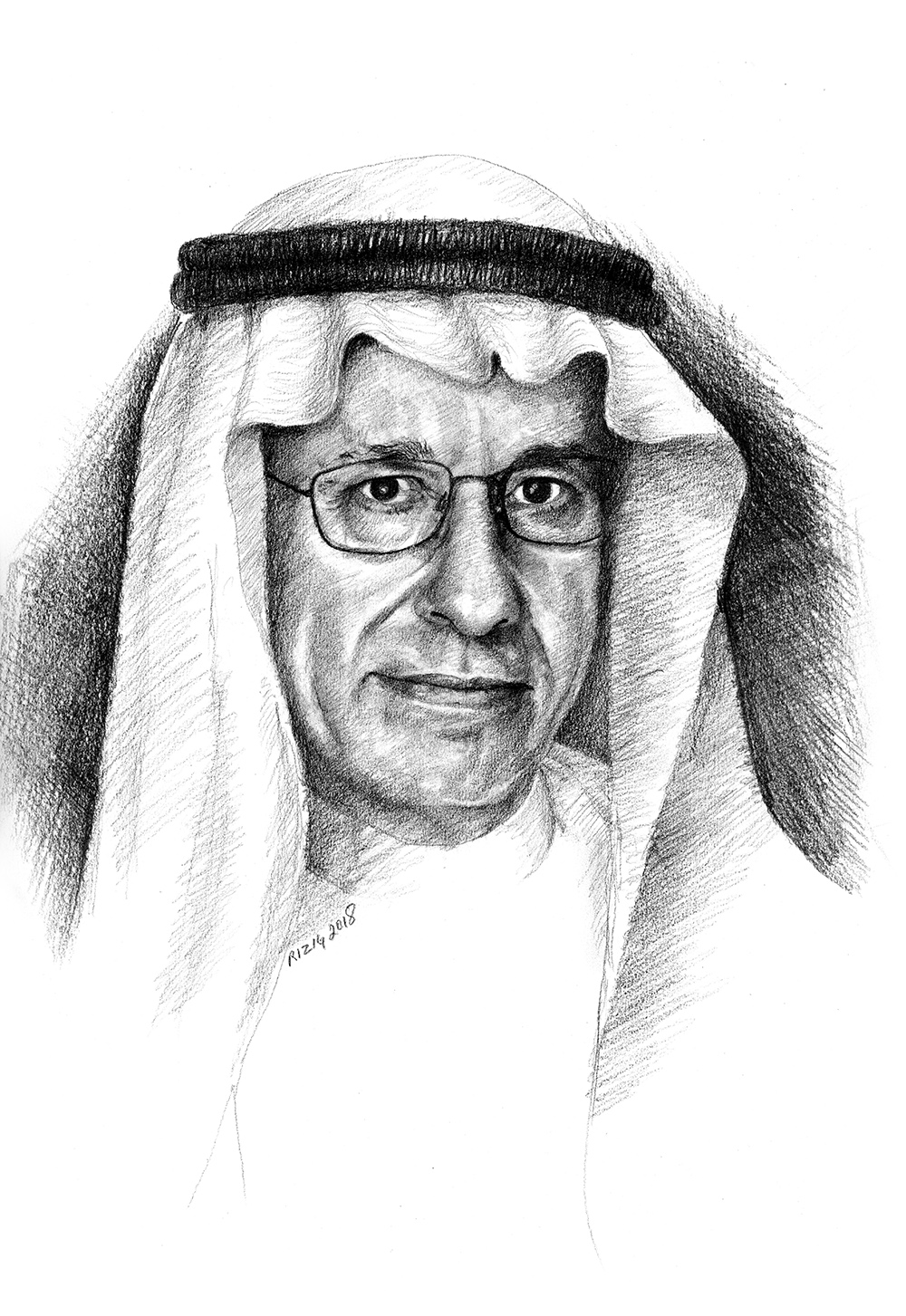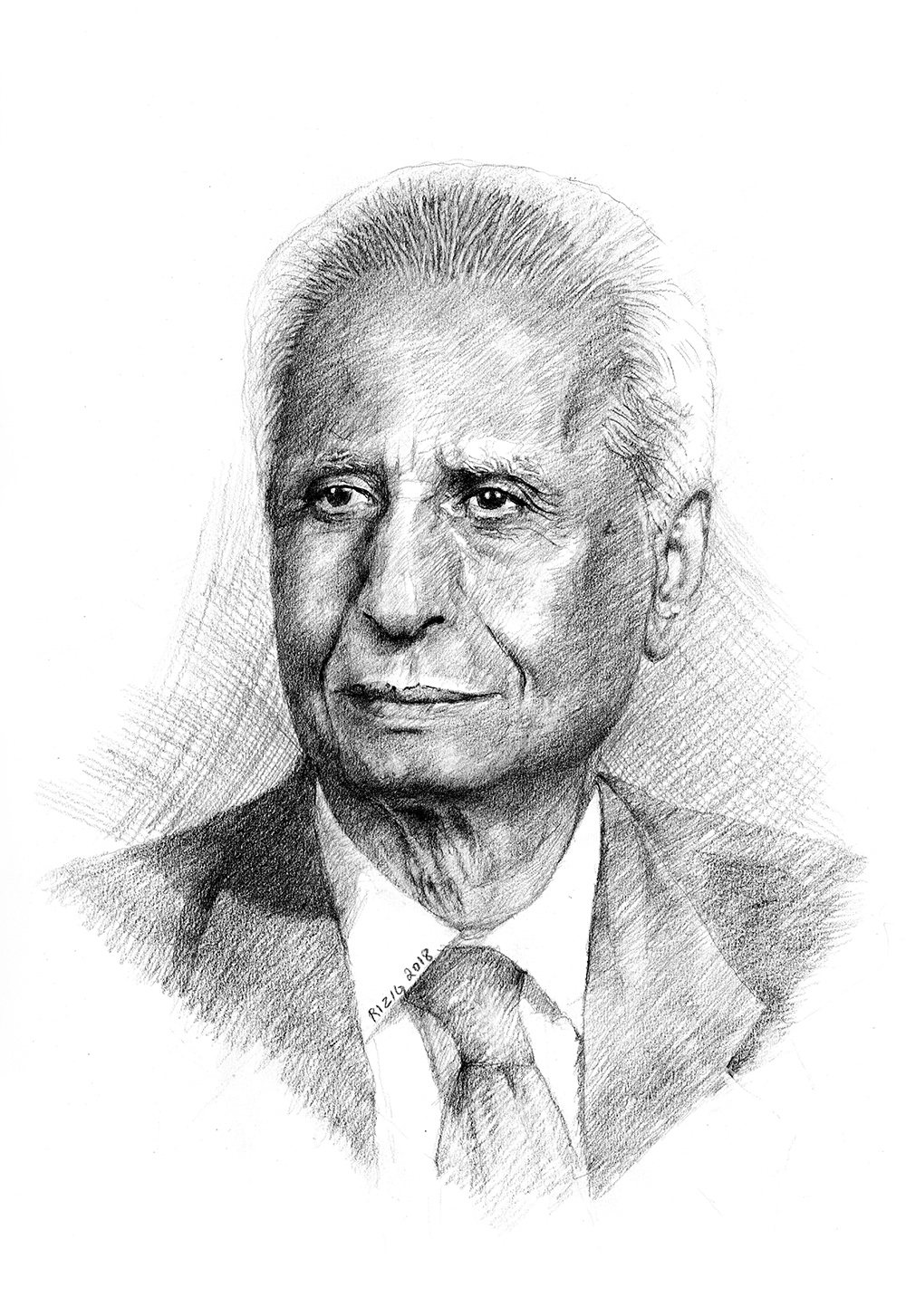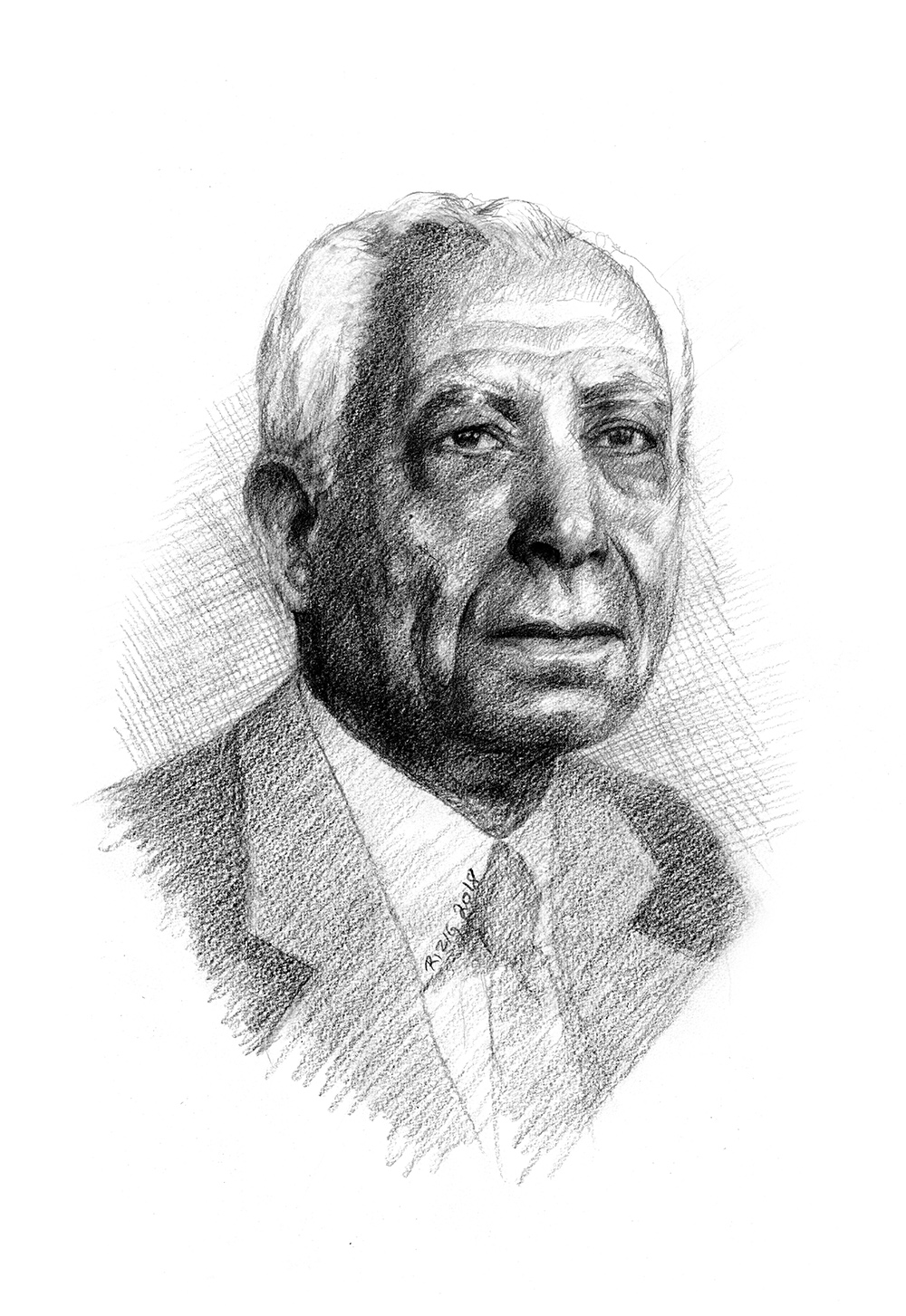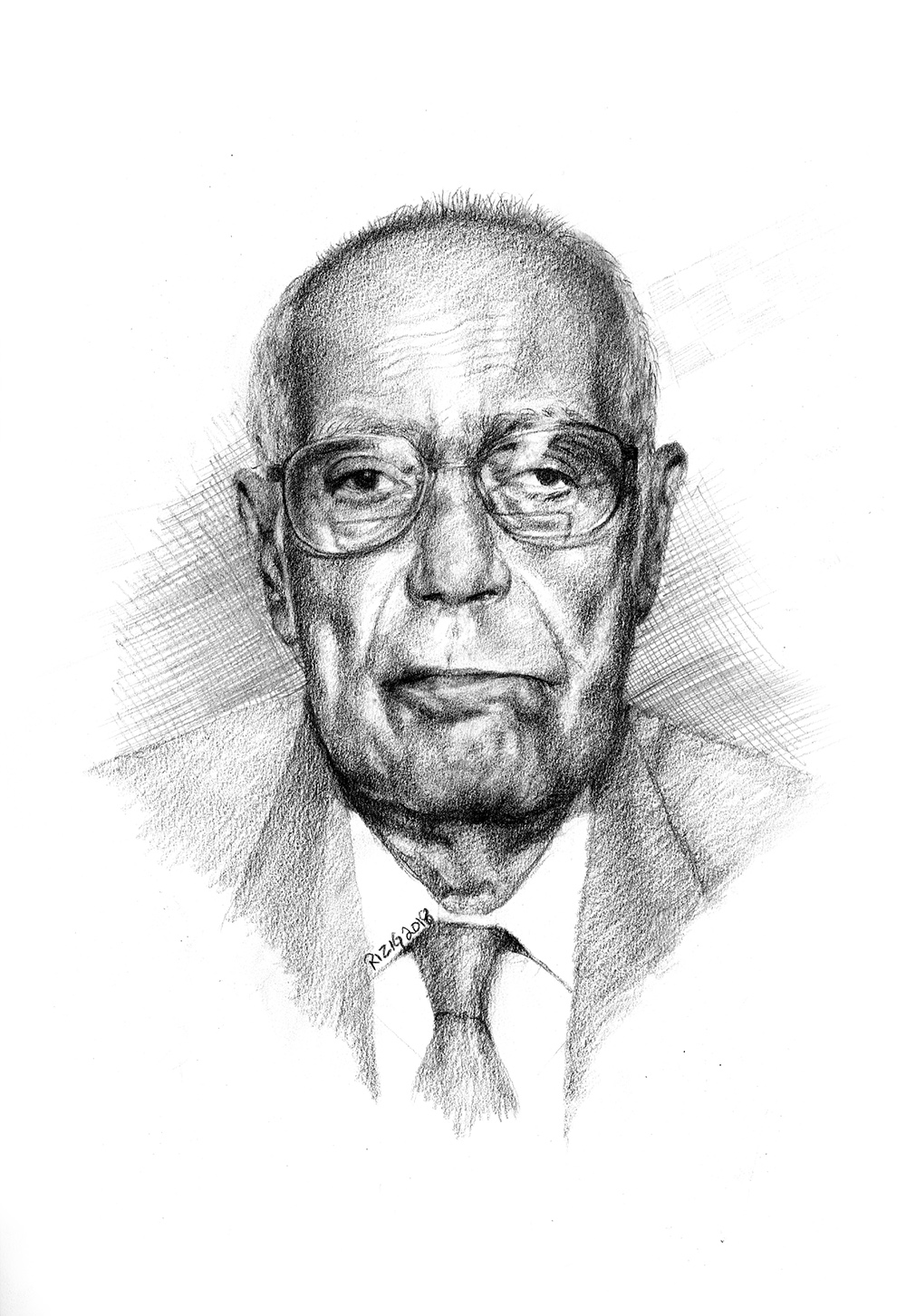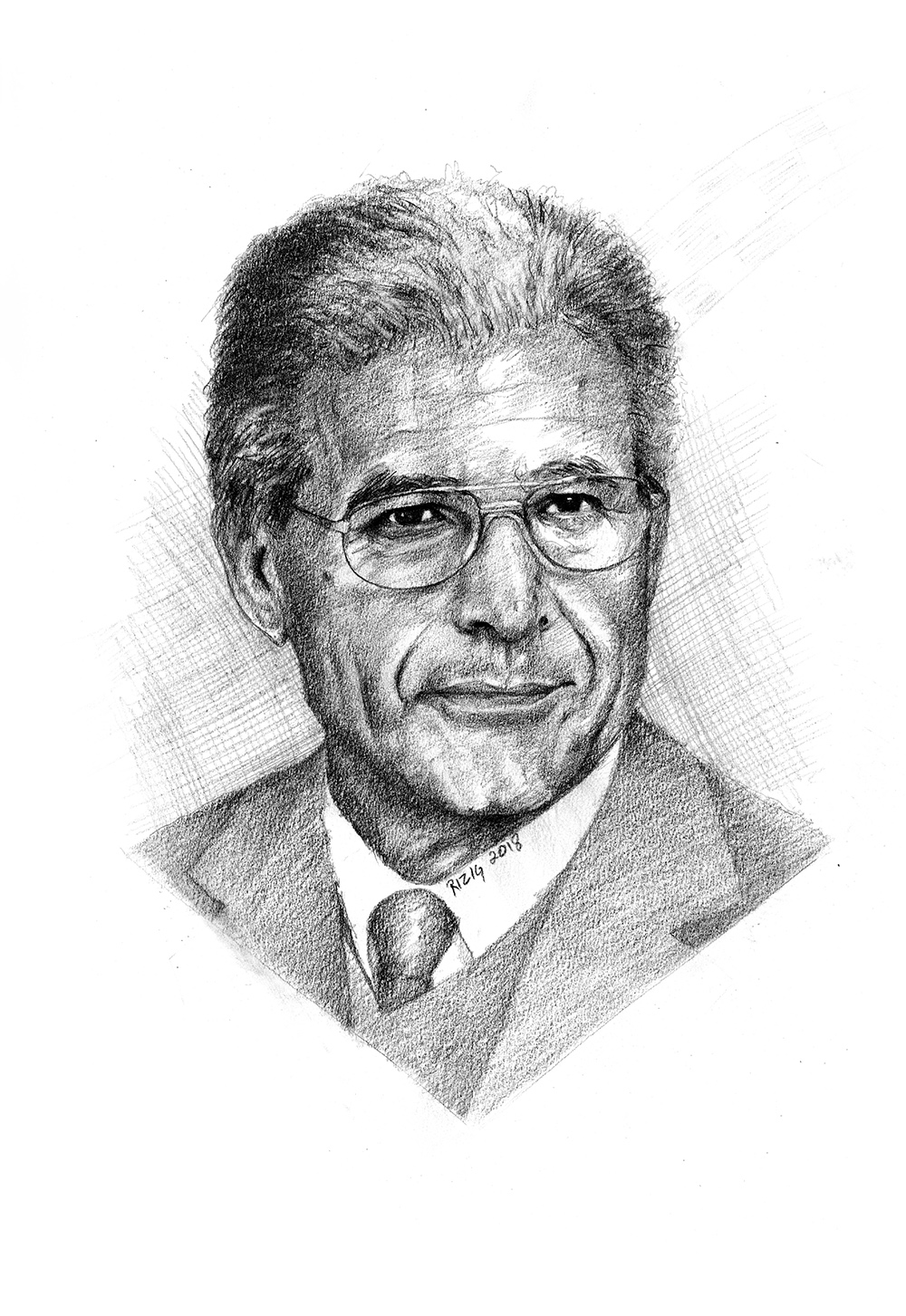Abdulrahman Hadj-Saleh attended regular schools, as well as evening classes in Arabic, in his hometown. At the age of 15, he joined the Algerian liberation movement and was eventually forced to leave his country to escape persecution by the French secret police. He moved first to Cairo, Egypt, where he attended Arabic classes at Al-Azhar Mosque and the College of Arabic Language, and became profoundly interested in studying Arabic language tradition, and the difference between ancient and contemporary Arabic grammatical thought. He traveled to France where he earned a License (Bachelor) Degree in Arabic Language and Literature in 1958, a Post-graduate Diploma in French Philology in 1960 from the University of Bordeaux, and an Agrégation Certificate in Language and Literature from the University of Paris 1961. Between 1961-1962, he served as Assistant Professor at the College of Arts, Rabat University, Morocco. At the same time, he earned a Diploma in Political Science from the College of Law and attended classes in mathematics at the College of Science in Rabat. In 1979, he earned a State Doctorate in Linguistics from the University of Paris-Sorbonne (Paris IV).
Professor Hadj-Saleh joined the University of Algiers in 1962. His academic career spanned nearly half a century, during which he served as a Professor and scholar of Arabic Language, as well as Director of Linguistics and Head of the Department of Arabic Language at the College of Arts in 1962, and became Dean of the College between 1965-1968. He also served as Director of the Institute of Linguistics and Phonetics at the University of Algiers between the years 1966-1984, Director of Linguistics Technology Research Unit in 1986-1991 and Director of the National Center for the Advancement of Arabic Language Research in 1992-2006. In 2000, he was appointed Chairman of the Algerian Arabic Language Academy. During his tenure in the University of Algiers, he also founded the Journal of Linguistics, developed a Master’s Program in Linguistics, and mentored a large number of researchers and post-graduate students, who are now occupying senior positions in his country.
Professor Hadj-Saleh is renowned for his insightful analysis of al-Khalil’s linguistic theory and its relation to contemporary grammatical thought, and is considered the originator of the “modern” concept of that theory. He is also known, both in his country and in the Arab world, for his significant contributions to the study, evaluation and teaching of Arabic linguistics and his active role in Arabicization, in addition to his numerous other cultural activities. He is an elected member of four Arabic Language Academies, in Damascus, Baghdad, Amman and Cairo, and was Chairman of the Arab League’s International Committee and High Commission for the Arabic Language Heritage Project, and the Algerian National Committee for Educational Reform. He also served as an expert in the United Nations Educational, Scientific and Cultural Organization and as Member of Advisory Councils of ALESCO’s Arabicization Coordination Office in Rabat, and in Khartoum International Institute of Arabic Language and the Institute of Ancient Arabic Manuscripts in Cairo. Besides, he was the Director of the Arabic periodical: Journal of Linguistics, and was a member of the editorial board of Zeitschrift für Phonetik, Sprachwissenschaft und Kommunikationsforschung published in Germany.
Professor Hadj-Saleh is the author of many Arabic, English, and French articles and books. His publications cover a wide field of linguistics, phonetics, grammar, lexicography, rhetoric and Listening, including: Buhuth Wa Dirasat Fi Ulum Al-Lisan, Mantiq Al-Arab Fi Ulum Al-Lisan, Arabic Linguistics and Phonetics, in Applied Linguistics and Signal Processing, and Linguistique arabe et linguistique generale: essai de methodologie et d’episternologie du ilm Al-Arabiyya. Of particular importance is his work on modern concepts of al-Khalil’s linguistic theory.
This biography was written in the year the prize was awarded.

